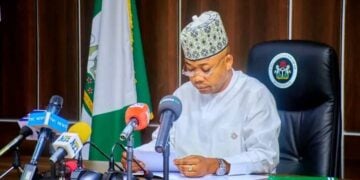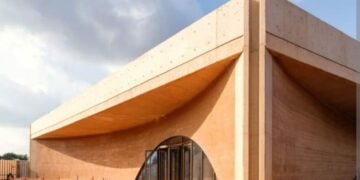The Northern Christian Youth Professionals (NCYP) has called for unity across religious and political lines to combat the country’s escalating terrorism crisis, warning that sectarian divisions are enabling criminals to operate with impunity.
In a statement signed by its chairman, Isaac Abrak, yesterday, it said that mutual suspicion and blame between Christian and Muslim communities have allowed terrorists to exploit Nigeria’s fault lines, perpetuating violence across the nation.
“Terrorism knows no religion, region, or tribe,” Abrak said, pointing to deadly attacks in Christian-majority areas like Plateau, Benue, and Gombe—where a truck recently rammed into an Easter mass rally—as well as ongoing violence in Muslim-majority states such as Zamfara, Katsina, and Sokoto.
“Nigeria as a whole is being targeted, and unless we unite, we risk losing everything, as seen in countries like Afghanistan and Yemen.”
The NCYP urged Nigerians to set aside religious and ethnic differences and rally behind “people-centred policies” to counter terrorism.
Among their proposals is the revitalisation of the Forest Guard, a community-based security initiative outlined in President Bola Tinubu’s campaign manifesto.
The group argues that recruiting local residents to protect forests—key hideouts for terrorists—would enhance security, create jobs, and reduce the appeal of extremist recruitment.
The organisation also voiced strong support for the full implementation of local government financial autonomy, as mandated by Nigeria’s Supreme Court.
Abrak said direct funding to local governments would spur grassroots development and bolster community resilience against extremist influence.
However, the NCYP expressed frustration at what it described as “political manoeuvring and sabotage” hindering these reforms.
Abrak questioned the delay in establishing state police, a debated alternative to the Forest Guard, and asked whether such forces would prioritise reclaiming terrorist-controlled forests. “If state police is viable, why hasn’t this government moved swiftly to implement it?” he said.
The group called on rural communities to demand the swift enactment of these policies, citing the National Assembly’s rapid response to the constitutional crisis following President Umaru Yar’Adua’s death in 2010 as proof that reforms are possible when political will exists.
“Nigerians must raise their voices,” Abrak said.
“The political class has shown that when the will exists, legal reforms can be enacted swiftly.”





